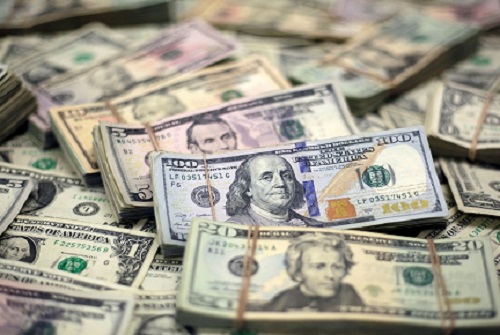Mousumi Islam
Published:2023-11-09 19:03:40 BdST
RemittancesSmall banks in trouble for higher dollar rate
The banking sector is seeing unhealthy competition as some banks, especially the big ones, are offering higher dollar rates for remittances while the small ones are at a disadvantage.
Only four to five big private banks are now said to have a monopoly on dollar trade.
State-owned banks mostly use dollars for government imports. But the government does not pay higher than the official rates. So these banks are unable to buy dollars at higher prices, unlike the private ones.
Despite various measures by the authorities, the dollar crisis persists in the country. After the Association of Bankers Bangladesh and the Bangladesh Foreign Exchange Dealers' Association fixed the dollar exchange rate last year, the market became chaotic.
Former lead economist at the World Bank’s Dhaka office Zahid Hussain said all small and big banks would be able to buy or sell dollars as per their requirements if the exchange rate is left to the market.
“The dollar selling price has been set at Tk111, which has created trouble for both importers and banks. Banks are offering incentives on remittances in addition to what the government provides. As the selling price has been fixed, only the banks having good communication with big importers are able to open letters of credit,” he said.
“As a result, small banks will be in trouble. The dollar rate should be left entirely to the market. The rate was fixed many months ago, but the crisis remains. The situation is even getting more complicated,” he added.
The Bangladesh Bank data shows the country received $1.98 billion in remittances in October, the highest in four months.
Experts attributed this increase to the government’s various initiatives aimed at stabilising the foreign exchange market, including offering remitters more incentives. Expatriates sent home 48.2% more remittances in October compared to the previous month.
Five state-owned banks, except for Bangladesh Development Bank Limited, received remittances of $244 million in July. In October, the figure fell to $154 million.
Islami Bank usually receives the highest remittance. In August, it received $340 million, which decreased to $316 million in October. Social Islami Bank received $127 million in August, but the October receipt was $105 million.
On the other hand, some banks received more remittances than before. Trust Bank received $74.4 million in August, which increased to $114 million in October. Premier Bank received $2.1 million in August, which jumped to $48.4 million in October.
City Bank received $74.4 million in August, but the October figure rose to $110 million. First Security Islami Bank received $19.3 million in September, which went up to $26.6 million in October. Eastern Bank received $34.2 million in September and $68.4 million in October.
Remitters now get extra incentives of up to 2.5% from banks in addition to the 2.5% offered by the government as banks have increased efforts to boost remittances amid the foreign exchange crisis.
This means remitters will get up to Tk115.5 per $1 if they send money via banking channels as the dollar rate has been set at Tk110.5 for them. The extra bank incentive decision was implemented in the last week of October.
Md Mezbaul Haque, spokesperson for and executive director at the Bangladesh Bank, said if the dollar rate was left to the market, there was a risk that the price would increase a lot at one blow, which would have made the situation even worse.
He said the central bank is tackling the crisis well.
When asked why some banks are buying dollars at Tk123-124 from remitters, he said, “According to the latest decision, banks can give incentives of up to 2.5%. If a bank offers a higher rate, it has to bear the responsibility.”
Ahsan H Mansur, executive director of Policy Research Institute, said remittances and exports would have increased if the dollar rate was left to the market when reserves were higher.
“The move had the potential to raise reserves. By fixing the exchange rate, the central bank has exhausted more than half of its reserves. If the dollar rate rises to Tk123-124 now, the situation will worsen in the near future.”
On Tuesday, forex reserves fell to $19.45 billion after paying September and October import liabilities to the Asian Clearing Union. Gross reserves – which include the Export Development Fund and loans from reserves – stood at $26.42 billion.
The central bank started following the International Monetary Fund’s BPM6 method to calculate reserves to satisfy a condition set by the global lender as part of the $4.7 billion loan programme for Bangladesh.
Unauthorized use or reproduction of The Finance Today content for commercial purposes is strictly prohibited.


